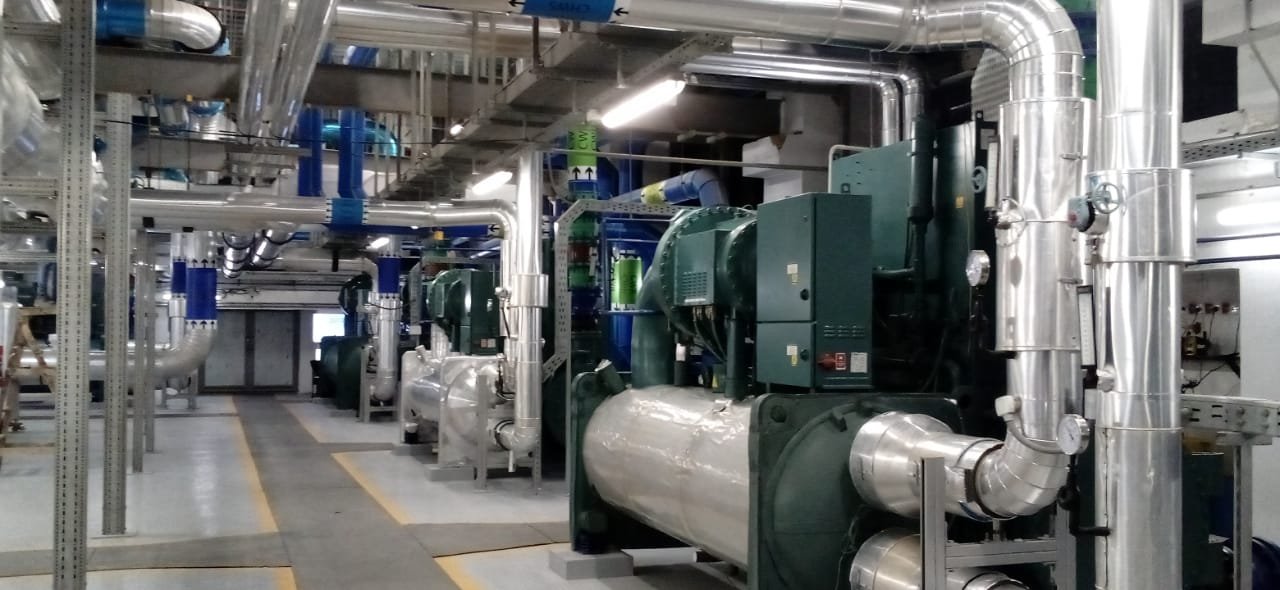The way to have a comfortable and energy-saving house is to know your system. It offers service for maximum indoor air quality and encompasses the basic principle of keeping the place at room temperature for comfort 365 days a year. HVAC systems are an acronym for Heating, Ventilation, and Air Conditioning, and one of the very best ways to ensure good air quality and a comfortable temperature. Our guide goes a little further in reflecting on the provisions of HVAC systems, what they are composed of, and how they are maintained, reviewing the associated general developments. Read our blog about HVAC for a deeper insight.
Components of an HVAC System
An HVAC system is a combination of several components and is noted to work in unison to keep the interior climate regulated.
Heating Unit: Typically includes a furnace or heat pump. The furnace burns fuel to generate heat, whereas the heat pump heats and cools by transferring heat from one place to another.
Ventilation: This is the process of air exchange where ducts and filters, supposed to have air, are provided with air. Proper ventilation also assures in-house air quality through the processes of filtering pollutants from the air and circulating the fresh air.
Air Conditioning: The work done by the air conditioner is primarily to cool off the air and remove unwanted moisture. Air conditioners cool the air by removing heat from indoors through refrigerant and then rejecting the heat outside the premises, thus causing the cooling effect.
Regular Servicing of your HVAC System: Why it’s Important
Scheduling your HVAC maintenance regularly helps your system to have a longer operating life and to run more efficiently. Maintenance that is scheduled well in advance avoids schedules that break down and ensures the system performs at its optimum level. Key maintenance tasks include:
Replace Air Filters: Dirty filters block the passage of air. This means that your unit will strive to or force itself to work and, consequently, run on more power. Replace air filters every 1-3 months.
Inspection and Cleaning of Ducts: Dirt and debris accumulate in the ducts. This leads to the degradation of indoor air quality and inefficiency of the system, all of which are preventable by inspection and regular cleaning.
Check Thermostat Settings: Checking the thermostat can assure that the settings are done correctly, thereby allowing the system to perform properly without waste of much energy. You may also want to consider purchasing a programmable thermostat in order to monitor your home’s temperature.
Professional Inspections: Yearly professional inspections by a certified HVAC technician can catch and repair potential problems before they become major.
New Technologies for HVAC
The HVAC industry harmonizes the continuously changing technology for the best efficient and sustainable working, which incorporates innovative techniques. Here are some of the latest trends:
Smart HVAC Systems: These are systems enhanced through internet of things technology for additional control and automation. For example, a smart thermostat will learn your schedule for temperature and adjust it, saving energy in the process.
Energy-Efficient Models: In addition, unlike older models, these HVAC systems are made to be energy efficient, thus reducing utility bills. Ask for SEER ratings when considering any systems.
Environmentally Friendly HVAC Solutions: Such green HVAC solutions tend to be on the rise in this era. Some of them include geothermal heat pumps and solar-powered systems that use abundant sources of renewable energy in heating and cooling homes with as little environmental damage as possible.
Enhanced Air Quality Solutions: Presently, HVAC systems are designed with advanced air purifiers, humidifiers, and other features for system improvement.
Getting the Best HVAC System
Some of the most important factors to consider when choosing an HVAC system for your home are:
Home Size: The needs for your system should meet the needs to properly heat and cool your space. An improperly sized system cannot provide comfort or, if it is too large, it is very energy-wasteful and may even wear out more.
Climate: Your local climate plays a significant role in determining which type of HVAC system you need. For example, heat pumps are used in moderate climates, while furnaces are used in cold ones.
Energy Efficiency: Look for high-rated and efficient systems to reduce your carbon footprint and save on electricity bills. A good benchmark would be Energy Star systems.
Budget: Although it may cost a lot to install high-efficiency systems, many of them pay for themselves in the long run through reduced energy bills and very few maintenance problems. Having a well-maintained and properly working HVAC system is essential for a comfortable and healthy indoor environment. Know the workings of the system, understand the maintenance, and stay abreast of what is going on in the industry. This will bring out the best from the HVAC system. Looking for tips and insights? Then you may want to read our blog on HVAC.











